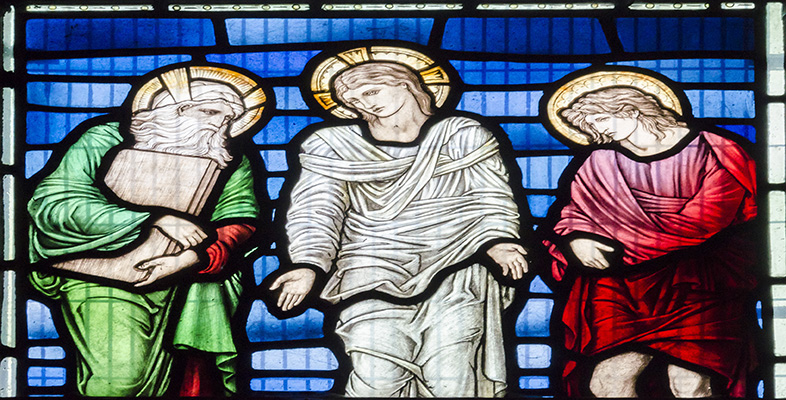Improving the definitions
Perhaps you can improve my definitions of ‘God’ and ‘religion’ yourself. One way you might improve my provisional definition of ‘religion’ is by examining the origin of the word.
The origins of words are not always philosophically interesting or important. But sometimes they are, and ‘religion’ may be a case in point. Though the origins of the word are not completely clear, it seems to come from the Latin re-, meaning ‘back’ or ‘again’, and ligio, meaning ‘a tie’ or ‘a connection’. So if we go by its origins, the word ‘religion’ could apparently mean either (or both?) of two very different things. It could mean a tying back, a restraint, a bind that stops you doing things. It could also mean a reconnection, a way of getting back in touch – perhaps, back in touch with the divine. It is interesting that, even today, the foes of religion see religion as almost exactly the first of these, while the friends of religion see it as almost exactly the second.
You might also improve my provisional definition of ‘religion’ by pointing out that not all religions believe in one God. The Ancient Greeks, Romans and Vikings all believed in many gods, as do some Hindus today. (Their view is called polytheism, from the Greek polu ‘many’ and theoi ‘gods’.)
Or again, you might improve my provisional definition of ‘God’ by pointing out that many people have believed in a God who is neither personal nor beyond the world. For instance, the philosopher Baruch Spinoza (1632–1677) said that God was the same thing as everything – the whole of reality. (This view of God is called pantheism, from the Greek pan ‘everything’ and theos ‘God’.)
Also, you might point out that my provisional definition of ‘God’ won’t do, because it apparently implies theism. It seems to imply that God exists, because it defines God as ‘the supreme personal being existing beyond the world’. But surely, you might say, we can’t settle the question of God’s existence just by looking ‘God’ up in a dictionary! After all, many people don’t believe in God at all. (Their view is called atheism, from the Greek a ‘not’ and theos ‘God’.) And many other people don’t think that we can know one way or the other whether or not there is a God. (Their view is called agnosticism, from the Greek a ‘not’ and gnōsis ‘knowledge’.) So surely my definition should have said that ‘God’ means ‘the one supreme personal being who is believed to exist beyond the world’, or something like that.
Finally, one other possible drawback is that Buddhism seems to be a religion, but there are quite a lot of Buddhists who apparently don’t believe in God. You might think that this means that Buddhism, at least as practised by non-theistic Buddhists, isn’t really a religion. Or you might think that it proves my definition wrong. (Does it? My definition said that religion is about ‘belief in and worship of a supernatural power or God’ – and even non-theistic Buddhists apparently believe in some supernatural powers, such as karma.)
Despite these drawbacks, and possibly others, too, my two provisional definitions will do as a start, just to get us at least roughly straight about what we mean here by ‘God’ and ‘religion’. Quite often in philosophy, a definition is only a rough and ready starting-point – something to get thinking going, not something to close it down. In general, the more interesting things are, the harder they are to define. So I wouldn’t be very surprised if no completely satisfactory definition of religion was available.
